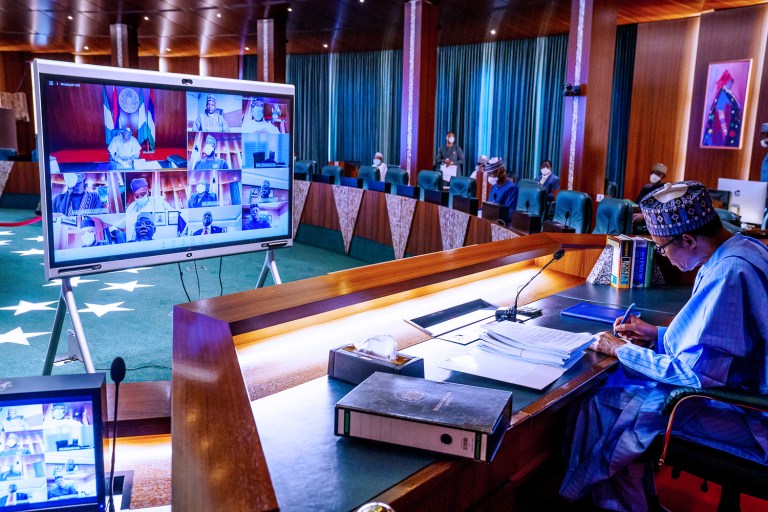Efforts on practical arrangements for the launch of the single currency, ECO, have been intensified by the Economic Community of West African States (ECOWAS).
A consensus on the currency was reached by ECOWAS at its 65th Ordinary Session as revealed in a communiqué issued at the end of the 66th ordinary session of the authority of the head of state and government meeting held in Abuja.
The launch of the currency, which was delayed in 2020 due to the Coronavirus pandemic, has now been slated for 2027.
ECOWAS authority urged the central banks and member states to take the necessary measures for the payment of their financial contributions for the operationalisation of these institutions as soon as the decision on the effective date for the launch of the ECOWAS single currency is taken.
It also called for more efforts to ensure that the deadlines set for the establishment and operationalisation of the institutions needed to launch the ECO are met.
The ECOWAS currency is intended to lower trade costs and improve intraregional trade, which is currently hindered by the use of different national currencies that are not convertible within ECOWAS.
ECO is expected to boost economic prosperity of ECOWAS countries.
The national currencies of member countries and the common currency are expected to circulate side by side for a short period.
The Economies of West African States (ECOWAS) has intensified efforts on practical arrangements for the launch of the single currency, ECO for the region following consensus reached in the implementation of the directives issued at its 65th Ordinary Session.
Advertisement
This was revealed in a communiqué issued at the end of the 66th ordinary session of the authority of the head of state and government meeting held in Abuja on Sunday.
The ECOWAS bloc of 15 countries had previously planned to launch the currency in 2020, but the coronavirus pandemic caused delays.
The new launch date is 2027.
The Authority said it adopted the criteria proposed by the High-Level Committee for the selection of candidate Member States for the launch of ECO or those which would join at a later stage.
Advertisement
It instructed the Commission, in collaboration with the West African Monetary Agency (WAMA), to ensure that these criteria are incorporated into the protocol establishing the ECOWAS Monetary Union Agreement.
The Authority also endorses the proposals of the High-Level
Committee on the costs, sources and modalities for financing the implementation of the reforms and institutions needed to launch the ECO.
ECOWAS urged the central banks and member states to take the necessary measures for the payment of their financial contributions for the operationalisation of these institutions as soon as the decision on the effective date for the launch of the ECOWAS single currency is taken.
The Heads of State also urged the High-Level Committee, in collaboration with the ECOWAS Commission, to intensify its efforts to ensure that the deadlines set for the establishment and operationalisation of the institutions needed to launch the ECO are met.
The body said it welcomed the results achieved in the implementation of the ECOWAS Agricultural Policy (ECOWAP) within the framework of food security and nutrition.
Considering the critical role of agriculture in the socio-economic development of ECOWAS member states, the Authority directed the commission to ensure a swift implementation of the regional strategy for the Development of Livestock Farming and the Security of Pastoral Systems; the Regional Rice Self-sufficiency Initiative and its road map 2025-2035; and domesticate the Comprehensive African Agriculture Development Programme (CAADP) Action Plan 2026-2035.
The Authority also welcomed the strengthening of cooperation with technical and financial partners and urged member states to work together with community institutions towards the achievement of these initiatives for food security and nutrition in the region.
The ECOWAS currency is intended to:
Improve trade
A single currency could lower trade costs and improve intraregional trade, which is currently hindered by the use of different national currencies that are not convertible within ECOWAS














